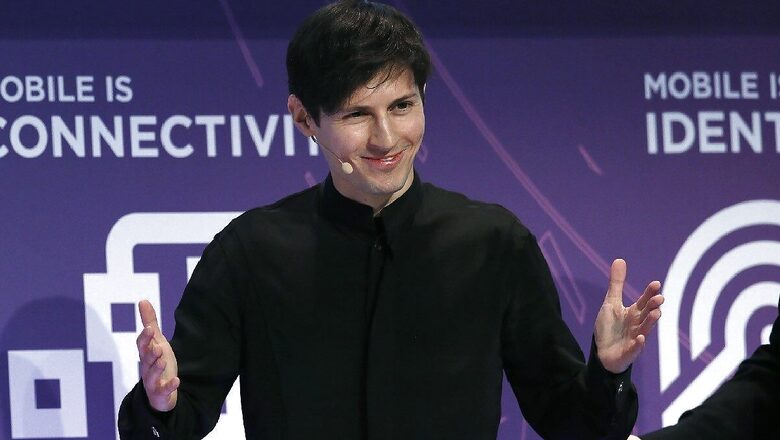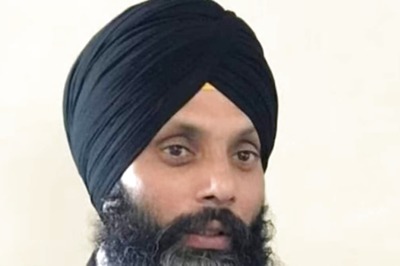
views
A French judge released Telegram boss Pavel Durov under conditional terms on Wednesday in a probe into organised crime on the popular messaging app. The Russian-born billionaire was granted bail after he paid 5 million euros and promised not to leave French territory.
Shortly after his arrest at Le Bourget airport last week, concerns about free speech, online regulation, and international diplomacy dominated social media platforms. The fact that the 39-year-old tech executive has acquired multiple citizenships over the past decade has added layers of intrigue to his current legal troubles.
Citizenship Row
His passports from Russia, France, the UAE, and Saint Kitts and Nevis have historically provided him with significant protection, given his role as a vocal advocate of free speech. Telegram, under his leadership, has been used to organise protests in repressive regimes like Iran and Russia, while also facing accusations of aiding illicit activities.
The French authorities’ charges against Durov include serious allegations that his platform has been used for distributing child sexual abuse material and facilitating drug trafficking. Telegram has defended itself, asserting that its moderation policies align with industry standards and that Durov has “nothing to hide.”
Russia, UAE
Durov’s arrest has sparked reactions from various international figures and governments. Russia, where Durov previously fled after a dispute over VKontakte social network, has expressed strong opposition to his detention. Kremlin spokesperson Dmitry Peskov criticised the move as an attempt to stifle communication freedoms and offered support for Durov.
Similarly, the United Arab Emirates, where Durov also holds citizenship, has requested consular access to him. French President Emmanuel Macron has sought to clarify the situation, emphasising that Durov’s detention is part of an ongoing judicial investigation and not a political decision. Macron has also pushed back against accusations of government censorship.
I have seen false information regarding France following the arrest of Pavel Durov.France is deeply committed to freedom of expression and communication, to innovation, and to the spirit of entrepreneurship. It will remain so.
In a state governed by the rule of law,…
— Emmanuel Macron (@EmmanuelMacron) August 26, 2024
Digital Rights
The situation has also drawn attention from tech leaders such as Elon Musk and Edward Snowden, who have criticised the arrest as an attack on free speech. Durov’s arrest also intersects with broader debates on digital rights and encryption.
Telegram’s model, which combines encrypted messaging with less stringent content moderation, has made it a platform of choice for both activists and malicious actors. Critics argue that Durov’s arrest sets a dangerous precedent for holding technology executives accountable for content on their platforms.
Mallory Knodel, a researcher at New York University, warns that such high-profile arrests could distort public perceptions of encryption and negatively impact global activists who rely on secure messaging. The arrest, she argues, may be intended to send a broader message rather than address specific legal violations. French authorities meanwhile continue to insist that the arrest is not political.




















Comments
0 comment